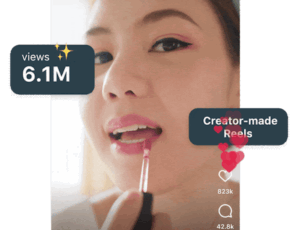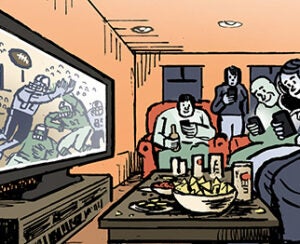On Tuesday, Roqad, a company that now describes itself as “the LiveRamp of Europe,” announced its acquisition of Zeotap-Data, the third-party data division of Zeotap, a startup that once wanted to be the LiveRamp of Europe.
Both companies declined to share the financial terms.
Roqad CEO Carsten Frien told AdExchanger the deal will help Roqad expand its identity resolution business through access to scaled third-party audience segments and Zeo tap Data’s integrations with around 30 ad tech partners, including The Trade Desk, Adform, Google’s DV360 and Amazon DSP.
Zeotap-Data recently became the exclusive data onboarding partner for Amazon DSP in Europe and India, and it’s one of two such partners in North America. (The other is LiveRamp.) Roqad will inherit these relationships.
But why is Zeotap unloading its third-party data business? It’s a matter of priorities, said Zeotap CEO Elad Simon.
Centering on the CDP
Zeotap launched a customer data platform in 2020 and has since become the company’s main strategic focus.
So, late last year, Zeotap spun off its third-party audience business and concentrated its resources on its CDP.
But the value of a CDP lies in its ability to accurately unify and reconcile customer data, which is why, as part of the deal with Roqad, Zeotap gets to maintain exclusive access to its identity graph for five years.
“Meaning that, moving forward, we’ll also be partners with Roqad beyond the actual acquisition,” Simon said.
Born in Berlin
AdExchanger Daily
Get our editors’ roundup delivered to your inbox every weekday.
Daily Roundup
Roqad, meanwhile, sees the deal as a way to strengthen its position as an identity resolution provider while expanding its reach by building on Zeotap-Data’s connections with major ad platforms, particularly Amazon.
“Amazon has been building an advertising business to compete with Google and Meta, and the growth there has been phenomenal,” Frien said. “And now any third-party that wants to monetize their data within Amazon DSP in Europe has to go through us.”
Going forward, Zeotap-Data will also help power Link, a data collaboration platform Roqad launched in June.
The platform, built on AWS Clean Rooms, allows companies to securely connect their customer data with Roqad’s identity graph and third-party data, such as the audience segments it’s getting from Zeotap-Data.
All of the data in Roqad’s identity graph is consented, Frien said.
“It’s a combination of TCF consent along with a detailed due diligence process we have for every data provider we onboard, including regular spot checks,” he said. “We work hard to make sure we’re buttoned up when it comes to privacy, especially in Europe.”
Zeotap and Roqad were both founded in Berlin in 2014, when the groundwork for what later became the GDPR was already underway.
Germany is known for its strong privacy protections and it was one of the first countries to enact a national data protection law in the 1970s.
“There’s a high expectation in the market because of our origins,” Simon said, “and we really want to live up to that standard.”
What’s on deck
All 15 Zeotap-Data employees will stay on board, bringing the combined company’s total headcount to 37 – and the plan is to keep growing.
Roqad aims to increase its team by 20% in the UK and Germany, focusing exclusively on sales roles. There’s a lot of great talent out there right now, in part due to the recent restructuring at WPP, Frien said.
Both Roqad and Zeotap-Data were “slightly profitable” on their own, he said, but merging the two roughly doubles Roqad’s revenue. There are also cost savings from migrating onto the same infrastructure and cloud provider.
Together, Roqad and Zeotap will generate somewhere between $2 million and $3 million in profit this year, Frien said.
Next up, Roqad has its eye on expanding into APAC and further into the US, where LiveRamp dominates. Frien moved Roqad’s headquarters from Berlin to Palo Alto when the company first entered the US around five years ago.
“We’re established there already, but the US is obviously the largest and most important market globally, so we want to double down on it,” Frien said. “We’ll have an office in New York most likely by next year.”














